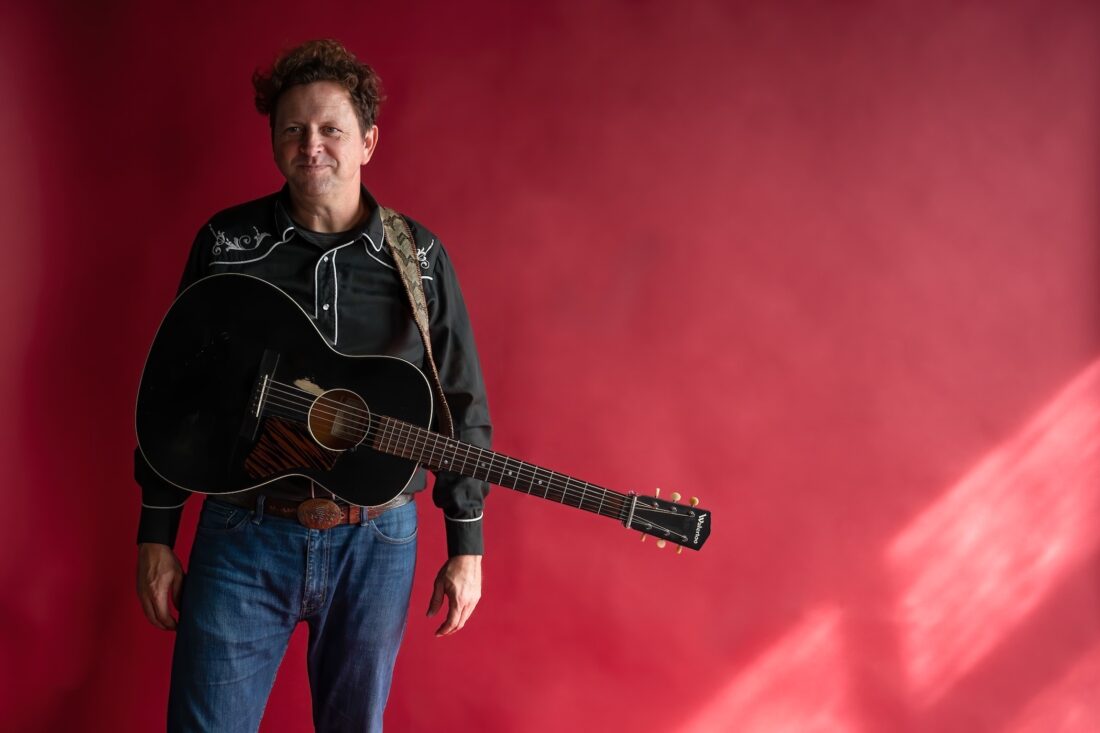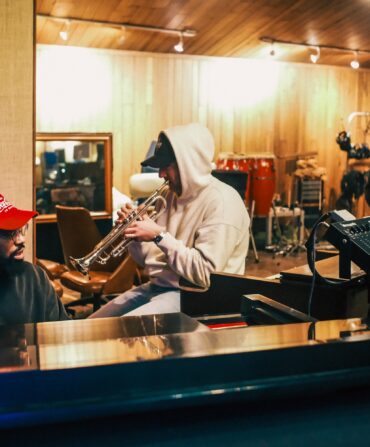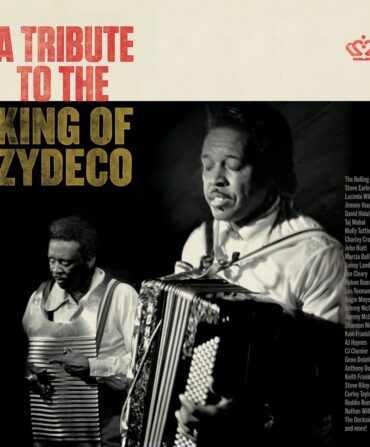When Abe Partridge took the stage at a Midwestern honky-tonk earlier this year, the crowd reacted with a polite smattering of applause, not knowing what to expect from the Alabama interloper. But after just a few songs, Partridge had them all transfixed, thanks to his wry lyrics that can evoke both laughter and tears, sometimes in the same song. While his voice may vaguely echo a nasally, chicken-fried Tom Waits, Partridge is a true, uniquely American original.

During his life, Partridge has evolved from a troubled youth to a Fundamentalist Baptist preacher to an Air Force serviceman to, today, an acclaimed songwriter, podcaster, and visual artist. His songs echo both his personal experiences and those of characters he’s met along the way, such as a forlorn teenage lover mourning the loss of his high-school relationship (“Young Love (Alabama Skies)”) and a narrator musing about a world where Albert Einstein joins the Beatles while John Lennon uses science to give peace a chance, in “Abe Partridge’s 403d Freakout”:
I know that Einstein had some pretty cool hair, but I wonder if he could twist and shout
And maybe if Einstein had been singing, “Ob-La-Di, Ob-La-Da”
Instead of drafting the letter to Roosevelt that paved the way for a nuclear bomb
Then a little boy from Nagasaki could’ve married a pretty young girl from Hiroshima
And they could’ve sang “Ob-La-Di, Ob-La-Da” together and taught their children songs by the Beatles
Partridge searched for stability and security throughout his youth, finding it in the Independent Fundamentalist Baptist church during high school. Not knowing what else to do after graduation, he decided to become a preacher, eventually attending four different Bible colleges in four years. “I liked going out and doing things teenagers do,” Partridge says in his friendly drawl. “I was a bit more wild than most of the kids at these schools, and you didn’t have to do much to get kicked out.”
Partridge met his future wife, Cathy, on a bus trip to Opryland during his stay at the third college, marrying her a day after graduating the fourth. Armed with “a piece of paper that wasn’t worth a hill of beans outside the Independent Fundamentalist Baptist Church,” Partridge began searching for a job. One church near the Maryland–West Virginia border turned him down because he admitted to owning a television. He eventually accepted an unpaid pastor position in rural Middlesboro, Kentucky, where a chance encounter with another pastor in 2006 left a lasting impact on young Abe.
Back then, Partridge was knocking on every door in Middlesboro, trying to bring new members into his congregation. One afternoon, he met Jamie Coots, a preacher at a different church in town. The two had a lengthy conversation about faith, during which Partridge discovered two things. One, Coots’s church was a snake-handling sect, with Coots himself wielding venomous rattlesnakes and copperheads as a sign of faith. Two, Partridge knew more than ever he wasn’t cut out for the ministry.
Plagued by doubts, Partridge took to songwriting and art, “just trying to keep from going insane,” he says. “I didn’t share them with anyone. I was just desperate to find a way to offload this stuff, to find a language that I didn’t have the words for. Finding these artistic outlets gave me the freedom to escape the bonds I found myself in.” As he recalls in “Love in the Dark”:
’Cause I went out to disciple, to set the mountains ablaze
And I had every answer, I knew just how to be saved
I thought I wanted to be a preacher, maybe I just wanted a stage
’Cause I was called to thе floor and I didn’t have nothing to say
Partridge started to discover songwriters like John Prine, Townes Van Zandt, and Guy Clark, buying used albums at a nearby flea market. In 2007, he left his church and joined the Air Force. He served overseas in Qatar during Operation Iraqi Freedom and Operation Enduring Freedom, where he continued to write songs, getting increasingly serious about the craft.
As to the similarities between writing a sermon and a folk song, Partridge says his sermons were “more outlines; I’d go up there and wing it mostly. If preaching is throwing mud against the wall and seeing what sticks, songwriting is about finding a diamond, then polishing it over and over. I might do a particular sermon once, then come back to that idea or scripture years later, but a song requires a lot more dedication, because I might be singing it a hundred times a year.”
After he returned home from duty, Partridge began playing shows in Mobile. Step by step, he built a local following, which led to regional tours and to now, opening for established artists like Justin Wells and nineties power-pop superstar Matthew Sweet as well as headlining his own gigs.
Although Partridge’s faith has transformed over the years, he still shares a deep bond with Jamie Coots’s son Cody and other snake-handling preachers. When the conversation turns in that direction, perhaps subconsciously, Partridge’s guard comes up. After the elder Coons’s death of a snake bite in 2014, snide news reports followed, and Partridge is wary of participating in any condescending conversation.
During the pandemic, in fact, Partridge became obsessed with these snake-handling churches, particularly one intriguing aspect: Many of them have a red-hot live band backing up the preacher, ripping funky, surf rock–inspired tunes that have never before been professionally recorded. The only thing hotter than the guitar licks are the fire-and-brimstone lyrics.
So Partridge and his coproducer, Ferrill Gibbs, crisscrossed southern Appalachia, visiting those churches with a microphone and audio recorder to create a podcast exploring both Partridge’s faith and a weirdly groovy musical subgenre. In 2022, they released the result— the now critically acclaimed (and utterly fascinating) podcast Alabama Astronaut—which spawned an art show at the Alabama Contemporary Art Center in 2023 entitled With Signs Following and an accompanying book.
(The podcast, however, shouldn’t be confused with Partridge’s song “Alabama Astronauts,” which deals less with heady topics and instead with the song’s narrator repelling an alien invasion in his trailer park, stealing a spaceship, painting it camo, and taking off into the stars with his friend Bubba “like an intergalactic redneck Lewis and Clark.”)
These days, when his creative fountain begins to overflow, Partridge either picks up his guitar or heads to his art studio. “Every time I deliberately try to create art, it doesn’t work,” Partridge says. “The more free [from distractions] I feel, the more things flow through my mind. I have friends in Nashville who write a song a day, and I don’t know how they do it. Or as he says in his song “No Teacher Blues”:
I’ll just play it like I feel it
Let it come from soul
Cause you don’t need no teacher
To rock n’ roll
After years of trying to find his footing, Partridge finally moves to the beat of his own drummer (or sometimes, that of the Red Clay Strays’ John Hall; Partridge and three members of the Mobile red-dirt band have a punk-music side project together called the Psych Peas.) He also may be one of the only folk singers today serving in the Air Force Reserves, which he does mainly to provide health insurance for his family.
“I get to live a life I love,” Partridge explains, “but for two days a month, I need to put on a uniform and say ‘yes, sir.’” With that, he and I end our call so that he and his three children can go fishing in the pond behind their Mobile home—a break from his unrelenting touring schedule. After a swing through the UK and the Netherlands this month, he’ll bring his unique brand of musical salvation back to the states and the South in November.








